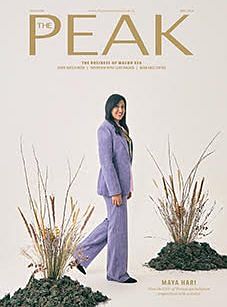Mental health and wellness issues are getting their time in the sun, and for good reason. In 2016, according to a Singapore Mental Health study, one out of seven residents reported experiencing a mental health challenge. These numbers have only gone up because of the pandemic.
Beyond mental health, however, more and more senior executives are also seeking mental coaching. Integral coach and co-founder of Matter Inc Chee Yan Yi says, “There has been an increase in the number of people looking for coaching and for a whole range of reasons. Individuals have accessed coaching for support in coping with the impact that the pandemic has had on their careers or lives all the way to getting help to navigate and build confidence in leadership.”
We chatted with Yan Yi about the benefits of coaching and what it’s like to go through a session.
(Related: 6 wellness retreats to take a work sabbatical at)
There are so many kinds of coaching out there. What are the differences and how does one choose?
The biggest challenge is to evaluate the differences so that you can find the right fit. The one thing that all coaches have in common is the ability to help you shift to develop, grow and speed up change. This could be in many areas, including physical training, professional development, leadership, business, and even personal relationships. Often some of them overlap with each other, but it is important to understand what is at the core of the support needed at that period.
The integral coaching approach is to help you access all three of your principal centres – the head, heart and body – so that you can find the best version of yourself.
Sometimes it can mean integrating coaching with specialised wellness practises. Therefore, we have also collaborated with COMO Shambhala Urban Escape. They have over 20 years of wellness experience and continue to do so with its whole new suite of integrated wellness offerings.

Who can benefit from integral coaching?
Just about anyone can benefit from integral coaching but those likely to benefit the most are those who are ready to introspect and look for inward guidance to expand their capacity and build new but authentic capability for themselves. They are ready to bring more meaning in their development as individuals by adding a softness, awareness, more flow, and intentionality into their lives. They are tired of trying to make sense of their everyday lives and living almost unconsciously on autopilot (typing, driving, meeting, scrolling).
Getting support through a neutral third party like a coach can help them jolt out of the situation they are in and provide them the inspiration to change some areas of their life.
You also have a service called Thought Partnership, which seems quite different from coaching.
Sometimes, when you are in senior positions, you are expected to have all the answers. This is often not true. We have seen many clients who do not want to let their guard down, who play the part but are lonely and sometimes overwhelmed. That’s where Thought Partnership comes in. Given our decades of experience in the marketing and communications industry, we offer that confidential space to be a sounding board and to bounce ideas and strategies off. After all, two heads are always better than one.
(Related: How COMO is digitising mindful living for a post-Covid-19 world)
Take me through a coaching session. What can one expect?
We recommend at least six sessions to allow enough depth work and possibility of shift to be experienced. Our first meeting is usually a chemistry session. It’s making sure you feel comfortable with us and also for you to figure out if this is the type of coach you need. (Editor’s note: This is usually free.)
After the session, once you decide to proceed, we work together to identify a challenge or aspect we want to develop, or a goal we want to work towards. We ask questions to draw deep so we are able to observe ourselves and create an opening for learning and development. This isn’t always easy.
We look for connections, patterns and behaviours that we want to change. Then we embark on creative practices to build new habits, behaviours or lean into what we want to ‘own’. We work on one area at a time. The idea is to become more self-aware and explore, grow and thrive so that you live your best self.








